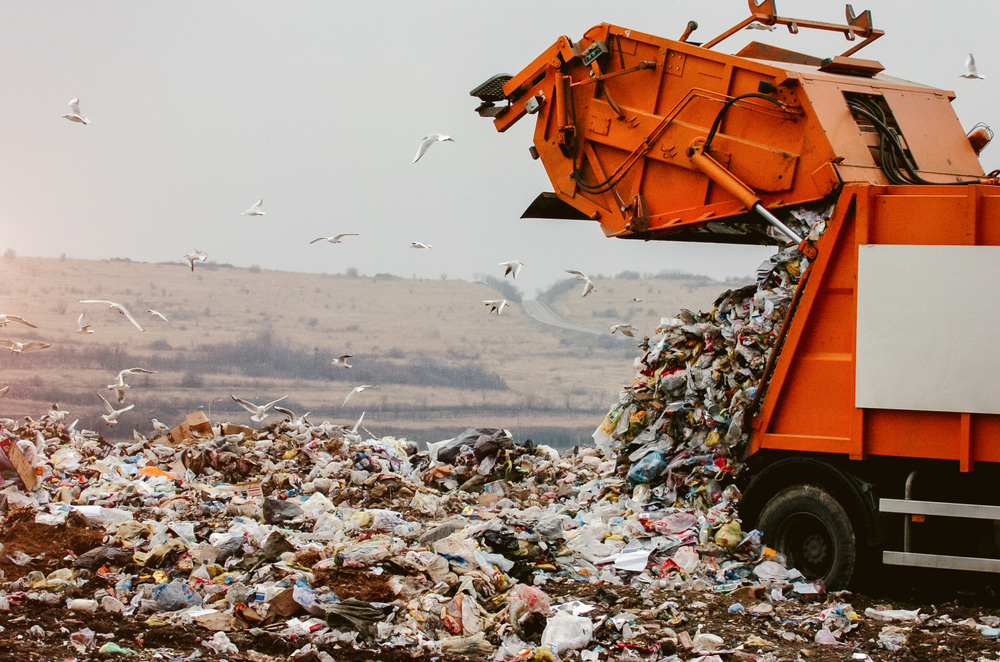
Our planet contains a lot of garbage. As Industrial revolutionwe humans have produced 30 trillion tons of stuff – from skyscrapers and bridges to clothes and plastic bags. Much of it is still with us in the form of waste.
Globally, people are adding 350 million tons to this amount every day. And what’s worse, much of the world’s trash is badly managed – dumped on land, in waterways and in open dumps in cities. This exposes people to serious health risks. It damage to plants and soiland much waste finds its way in the oceans. Thinking about what a mess we are making can be quite overwhelming.
Waste management in the US is big business.
Debris in space?
Sending garbage into space is not as strange as it may sound. After all, there is plenty of space without anyone – as far as we know today – asking for it.
Some researchers suggest sending waste into space. They mainly think about spent radioactive fuel rods from nuclear power plants. It is true that nuclear waste will remain extremely dangerous for tens of thousands of years and humans have done nasty job so far for its safe disposal on Earth.
However, there are these proposals never moved forward, for many reasons. One is the risk: what if a rocket carrying tons of highly radioactive waste explodes on liftoff? Another is the price it would be significantly higher than the already high cost of storing it safely on Earth.
There are also manyspace junk” is already orbiting the planet, including broken satellites and meteor debris. NASA predicts that there is over half a million pieces the size of a marble or larger in Earth’s orbit. They travel at high speeds, so they can really damage spaceships on collision. It would be unwise to add to this problem.
Here’s a much better strategy: Reduce the amount of waste that goes to landfills, incinerators, open dumps on land and in the oceans. Part of this work depends on governments setting rules on issues such as whether to allow single-use plastic bags. But there are many things people can do to reduce waste in their everyday lives.
Many communities in the US are beginning to compost organic waste, such as food and yard scraps. This reduces the volume of waste going to landfills and produces valuable fertilizer.
A lot of rupees
You may be familiar with “3 Rs rubbish“: reduce reuse recycle. Every step means less waste at the end of the day.
If you want to reduce waste in your life, choose reusable cups, cutlery or grocery bags instead of single-use plastic items. Many small and large cities have make this rule.
Some communities also collect organic waste, such as food and yard scraps, and turn them into compost – a soil-like material that gardeners and landscapers use as fertilizer. And many gardeners make their own composting at home.
You can reuse by buying second-hand goods and clothes and donating your unwanted but still usable things. Freecycle networks make it easy to give away usable items you don’t need and get different goods in return.
Recycling paper, plastic, glass and aluminum keeps them out of landfills. That too helps to slow down climate change, as it can take less energy to produce new products from recycled materials. in 2018 nearly a third of US municipal solid waste was recycled or composted.
Some items, such as plastic bags and straws, can be difficult to recycle. But aluminum cans, paper, cardboard and some types of plastic are successfully recycled at much higher rates. knowing what can be recycled where you liveand how to do itis important – rules vary widely from place to place.
There is more than Rs 3 per action. You can repair, restore and rethinking how you buy and use things.
There is a growing discussion about right to repair – giving consumers access to information and parts to repair their goods themselves, from electronics to cars. Companies prefer that you buy new replacements, but many people insist on policies that make it easier to fix your own stuff.
There are many opportunities to reduce waste before space is the only place left to put it. Once you try some, you’ll find it’s easier than you think.
Kate O’Neill is Professor of Global Environmental Policy at the University of California, Berkeley. This article was republished by The conversation under a Creative Commons license. Read on original article.

